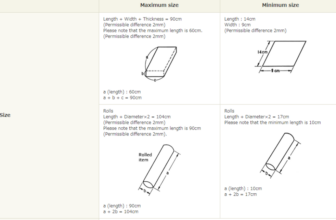
If you’re considering opening an espresso store, one of the crucial essential steps is creating a strong espresso store marketing strategy. This plan is essential for laying the groundwork and ensuring your business thrives. In this article, we’ll walk you through the key elements of an effective business plan and provide actionable insights to help you succeed, whether you’re opening a coffee shop or any other business.
For more helpful tips on business planning, check out our blog.

Do You Need a Business Plan for Your Coffee Shop?
The short answer is yes – a well-thought-out business plan is crucial for the success of your coffee shop. While you may have an idea of how you want to run your business, a clear plan will allow you to visualize how to get started and scale effectively. It answers important questions like:
- How will your coffee shop stand out from competitors?
- Who is your target audience? Where will your customers come from?
- How much capital do you need to get started and sustain your business until it reaches its break-even point?
- What are your sales projections for the first three years?
Having a business plan is not just about paperwork; it helps you think through critical aspects and make better decisions.
1. Set Clear Business Objectives
Start your coffee shop business plan by defining your goals. Why do you want to open a coffee shop, and why is this business in particular? Your goals may vary, such as:
- Making a profit: Transforming your coffee shop into a profitable venture.
- Building a career: If you have a background in hospitality, this could be the career path for you.
- Giving back to the community: You might want to use your business as a vehicle for supporting local causes.
Your goals will shape the direction of your business and influence your planning and decision-making. It’s also essential to consider whether you plan to exit the business at any point and how that will affect your operations.
2. Develop a Marketing Strategy
A solid marketing plan is key to attracting and retaining customers. This section of your business plan should include:
i. Target Audience
Who is your ideal customer? Are you catering to college students, young professionals, or couples on dates? Understanding your target audience will help you design the right atmosphere, pricing, and menu offerings.
- For students, you may want to keep prices affordable.
- For coffee dates, you should create a cozy and private environment.
- For the working class, consider offering quick service and a convenient location.
ii. Competitive Advantage
What sets your coffee shop apart from others in the area? Whether it’s superior customer service, unique menu offerings, or an innovative ordering system, identifying your competitive edge is crucial.
Consider the following elements:
- Branding: Ensure your store and products stand out with unique packaging or themed decor.
- Delivery options: mobile app ordering or delivery services.
- Pricing strategy: Develop competitive yet profitable pricing.
iii. SWOT Analysis
A SWOT analysis (Strengths, Weaknesses, Opportunities, Threats) helps you assess your business environment and make strategic decisions.
3. Create an Operations Plan
Your operations plan outlines how your coffee shop will run daily. It includes:
- Business structure: Will you be the sole owner, or will you have partners? Clearly define roles and responsibilities.
- Business registration and permits: Ensure you have all the necessary licenses to operate legally. Use resources like LegalZoom for business registration.
- Insurance: Consider business insurance to protect against potential risks.
- Equipment: List the equipment you need, from coffee machines to seating.
- Trading hours: Define your operating hours based on your target market’s needs.
- Location: A prime location is crucial. Decide whether you’ll lease or buy property. Websites like LoopNet can help you find commercial real estate.
4. Hire the Right People
Your staff will play a major role in the success of your coffee shop. Depending on the size and operating hours of your business, you may need to hire a range of employees, such as baristas, managers, and cleaners.
- If you plan to run a 24-hour coffee shop, ensure you have enough staff for shifts.
- If you’re working in the shop, you might serve as the accountant and team leader, which can help you maintain control over the business.
Train your staff to be courteous and responsive to customers’ needs, as customer service will be a significant factor in building loyalty.
5. Financial Planning
A solid financial plan is the backbone of your business. It should cover all financial aspects, including:
i. Startup Capital
Detail the funds you need for equipment, rent, initial inventory, and other essential costs.
ii. Sales Projections
Create a 3-year financial projection. This will give you a clear idea of your expected income, expenses, and profitability.
iii. Funding Sources
How will you finance your coffee shop? Will you use personal savings, seek a loan, or get funding from investors?
Conclusion
Launching a coffee shop without a business plan is a recipe for failure. A well-detailed plan that covers goals, marketing, operations, staffing, and finances will guide you through the process of opening and running a successful coffee shop. By following these steps, you’ll be better equipped to navigate challenges and scale your business. Planning is essential – stick to it and watch your coffee shop thrive!
This business plan structure is not only useful for coffee shops but can be adapted to suit any type of small business. Keep it concise, actionable, and focused on your goals, and your chances of success will increase significantly.





![Finest HEPA Air Purifiers to Promote On-line + Wholesaler & Dropshipper [China/US/UK]](https://www.tinydeals.net/blog/wp-content/uploads/2025/01/image-165-1024x1024-336x220.png)
